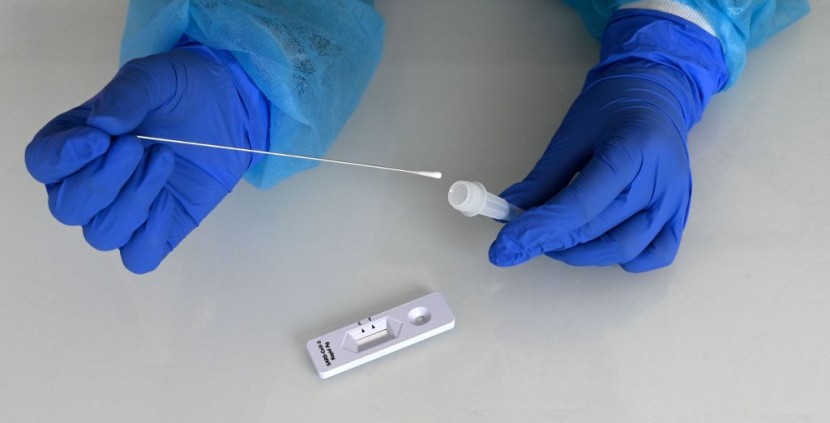
COVID tests might not be accurate as findings show a discrepancy in data from a study that markers of disease severity may need reassessment.
The conclusion is that the test might not accurately gauge whether a test is an indicator of being COVID-free. Test kits for SARS-CoV-2 are vital to keep track of the infection in a community and keep abreast of who is sick with the virus or not. It then asks how reliable all the results before this study are if it holds true to the data from research.
Studies of the COVID-19 tests show discrepancies
Studies were done at Skoltech, and several institutions with two Russian Academy of Sciences Institutes researched these immune responses to COVID-19 in subjects in different stages of infection, reported SciTech Daily.
According to the study, not all the patients had the same amount of IgG antibodies. That was more in asymptomatic cases that led researchers to revise how infected people are defined, which was posted in the journal Viruses.
Blood tests for identifying COVID-19 infection are used to detect antibodies, called immunoglobulins G (IgG). These antibodies emerge a few weeks after infection and appear in several different forms, based on which portion of the pathogen they link to.
Antibodies that attack the nucleocapsid protein and the receptor-binding domain (RBD) of the coronavirus spike protein are two of the most present are considerable.
The Russian-US study mentions that two antibodies are in those who recover from SARS-CoV-2, which are the mild and asymptomatic cases to severe ones, cited News Medical.
Researchers dispute accuracy of COVID-19 tests
One of the study's authors, Maria Tutukina of Skoltech, said that asymptomatic subjects don't have IgG antibodies linked to the pathogen's nucleocapsid protein. These should be indicators to mark if someone is infected with COVID-19, which concludes that COVID tests might not be accurate.
Anna Kaznadzey, the study's co-author, added that all patients had IgG antibodies connected to the RBD spike protein. Checking the level of antibodies to RBD may be more accurate as an indicator.
Also, if the antibody will be attacking the inner or outer virus particles, does the testee have the IgGs and RBD, without the nucleocapsid protein?
If the patient is asymptomatic, their antibodies have prevented an infection that could have been severe, which means the antibodies have destroyed the virus and left it unable to reproduce.
As long as the spike protein is stopped and the pathogen has been destroyed, further infection stops. But, some findings show the RBD levels will stay and increase instead of lessening it. This study does not verify prior research on the RBD lessening but should be the results during recovery.
Kaznadzey said that anyone getting better will have more antibodies if they are exposed to the virus again. If the IgGs do their job well, it will determine how much is produced.
Also, stating that if there was no pneumonia, then no need for a CT scan. Should the blood test show the antibodies are not in favor of the IgG to the nucleocapsid protein, a CT scan is in order, remarked Tutukina.
Those vaccinated have more anti-RBD levels show exposure, and revaccination is not needed due to immune response before. COVID tests might not be accurate, which can be of concern if it is the case.
Related Article : Another COVID-19-Like Pandemic May Happen in 60 Years? Researchers Anticipates the Probability
© 2026 HNGN, All rights reserved. Do not reproduce without permission.








